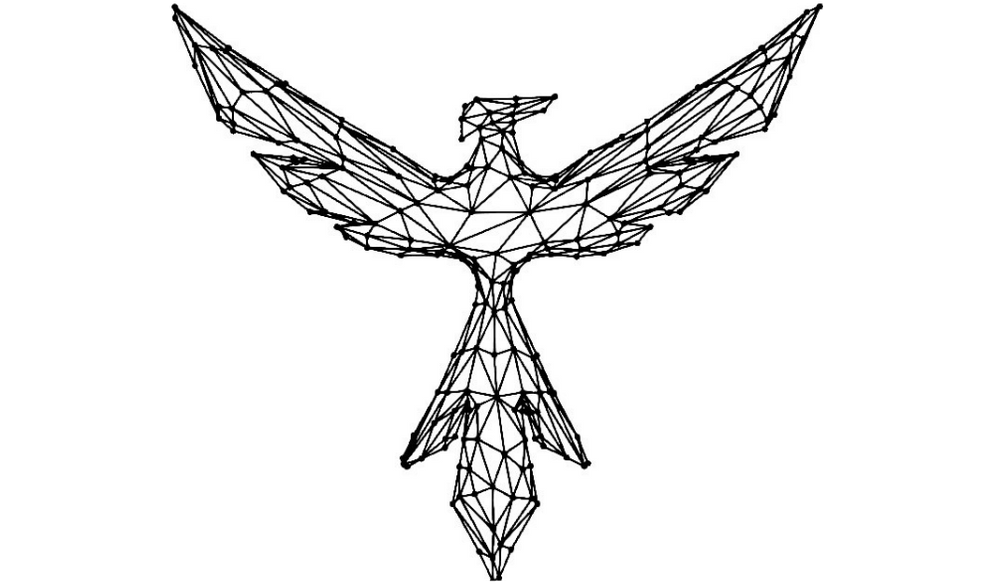Phoenix Project Delivers Data-Rich Summer Opportunities
When summer internships disappeared in a puff of smoke, Duke students rallied to match 210 students with projects at nearly 75 companies

The name of the project says it all.
By late spring of 2020, thanks to restrictions brought about by the COVID-19 pandemic, hundreds of Duke students’ carefully laid internship plans had gone up in flames.
But there were many companies that still needed the students’ software engineering and data science chops and could afford to pay them for their work—so a team of Duke students busied themselves making matches between the two parties, calling their effort the “Phoenix Project.”
This rise from the ashes was organized by the Duke Applied Machine Learning Group, which was founded last year to connect student enthusiasts with real-world projects. The group’s client-based approach was a good framework to hang the Phoenix Project on, but it had to scale up—while the Duke Applied Machine Learning Group has around 35 active members, nearly 350 graduate and undergraduate students applied for spots in the Phoenix Project after learning about it through Facebook groups, departmental emails or word-of-mouth.
“Almost 20 members of the Duke Applied Machine Learning Group stepped up to this project and reached out to their personal networks, venture capital firms and different professional sites to reach as many potential clients as possible.”
Mary Gooneratne ECE/CS ‘21
“Almost 20 members of the Duke Applied Machine Learning Group stepped up to this project and reached out to their personal networks, venture capital firms and different professional sites to reach as many potential clients as possible,” said Mary Gooneratne ‘21, who is majoring in electrical and computer engineering and computer science. “About 150 enthusiastic companies, including several with Duke founders, had reached out via our Google form by the time we were matching students to projects.”
Seventy-four of those companies offered internships to 210 students this summer. The students formed small teams around dozens of projects ranging from precision warfarin dosing to predicting battery life cycles, and just about everything in between. Large companies including Twitter, Coursera, and the US Department of Defense were among the Phoenix Project’s clients, as were startups, public service companies and university research labs that were loosely grouped into six areas of focus: Health, Environment & Data; Finance & Data; IoT/Electronics; Education; Government & Data; and Venture, B2B & Data.
By the end of their ten-week internships, students had not only learned to build a tech product for their clients from scratch, but also got experience working with remote teams, creating pitch decks and presenting to online audiences. The audience at their final presentations on August 5 included their clients and other industry representatives, as well as Duke faculty, staff and students.
By the end of their ten-week internships, students had not only learned to build a tech product for their clients from scratch, but also got experience working with remote teams, creating pitch decks and presenting to online audiences.
Arushi Bhatia ’23, a computer science and linguistics student, worked on a project for Black Fire Ventures, a global startup funding source for platform business and socially responsible investing.
“Our task was to devise a technological solution to restore trust in journalism,” said Bhatia.
Unfazed by the challenge of solving one of the most pressing social problems of our time, Bhatia and her teammates got to work, researching key problems facing journalism and consulting experts including Mark Stencel from the Duke Reporters’ Lab.
“We decided to move forward with devising a way to automate fact-checking,” said Bhatia. The team’s platform connects readers to articles that are fact-checked via blockchain and assigned a “truth score.” The higher the score, the higher the story appears in the reader’s feed.

Though no one in the team had participated in a fully remote internship before, and though the team never met in person, they completed their project without any major roadblocks. “Making sure to stick to defined team schedules, communicate clearly, develop friendships and manage team conflicts is not easy to do virtually, but it did make us more adaptable,” said Bhatia.
With support from Black Fire Ventures, the team is planning to join an accelerator that will help them develop their project further. “Our team did truly amazing work,” said Bhatia. “The client’s team was really happy with how the project has grown so far and what its future prospects look like.”
Gooneratne said that many of the project’s partner companies, including the DoD, have reached out to discuss continuing the summer’s work, and many of the Phoenix Project members have applied to Duke Applied Machine Learning to continue application-based learning through the semester.
The Phoenix Project also partnered with Duke Engineering Entrepreneurship (EngEn)’s new Product Lab.
“We pledged financial support to the Phoenix Project early on, and we felt that Product Lab could be a good way to support the program,” said Steven McClelland, EngEn’s Executive-in-Residence. Phoenix Project participants who enrolled in the four-week Product Lab were awarded a small stipend and got an overview of the product management role by evaluating products in different sectors and discussing them with their peers. “The hope is that by learning to critique products, they will have more insight into building better products,” said McClelland.
